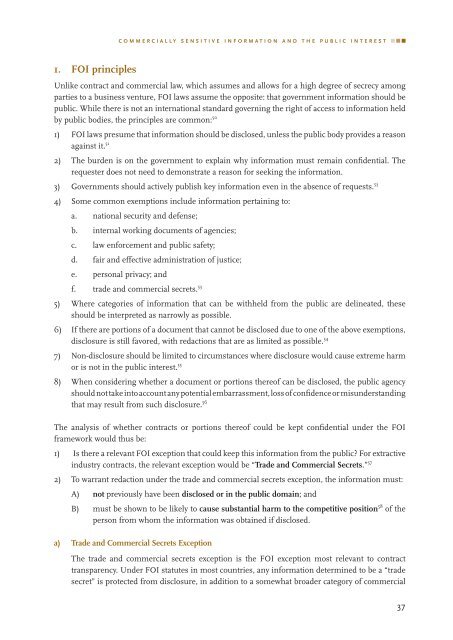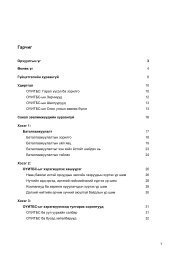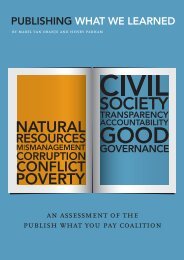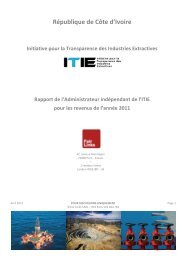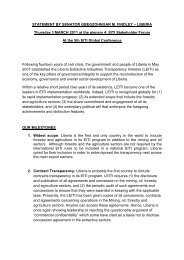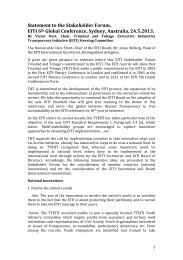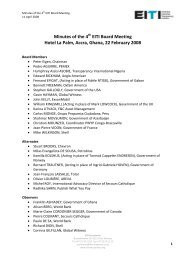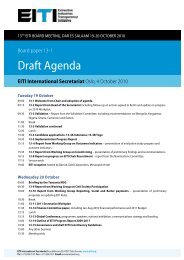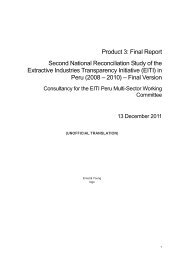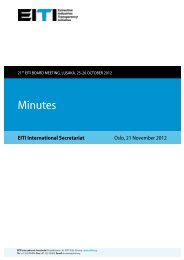CONTRACTS CONFIDENTIAL: - Good Law and Practice
CONTRACTS CONFIDENTIAL: - Good Law and Practice
CONTRACTS CONFIDENTIAL: - Good Law and Practice
You also want an ePaper? Increase the reach of your titles
YUMPU automatically turns print PDFs into web optimized ePapers that Google loves.
1. FOI principles<br />
COMMERCIALLY SENSITIVE INFORMATION AND THE PUBLIC INTEREST<br />
Unlike contract <strong>and</strong> commercial law, which assumes <strong>and</strong> allows for a high degree of secrecy among<br />
parties to a business venture, FOI laws assume the opposite: that government information should be<br />
public. While there is not an international st<strong>and</strong>ard governing the right of access to information held<br />
by public bodies, the principles are common: 50<br />
1) FOI laws presume that information should be disclosed, unless the public body provides a reason<br />
against it. 51<br />
2) The burden is on the government to explain why information must remain confidential. The<br />
requester does not need to demonstrate a reason for seeking the information.<br />
3) Governments should actively publish key information even in the absence of requests. 53<br />
4) Some common exemptions include information pertaining to:<br />
a. national security <strong>and</strong> defense;<br />
b. internal working documents of agencies;<br />
c. law enforcement <strong>and</strong> public safety;<br />
d. fair <strong>and</strong> effective administration of justice;<br />
e. personal privacy; <strong>and</strong><br />
f. trade <strong>and</strong> commercial secrets. 53<br />
5) Where categories of information that can be withheld from the public are delineated, these<br />
should be interpreted as narrowly as possible.<br />
6) If there are portions of a document that cannot be disclosed due to one of the above exemptions,<br />
disclosure is still favored, with redactions that are as limited as possible. 54<br />
7) Non-disclosure should be limited to circumstances where disclosure would cause extreme harm<br />
or is not in the public interest. 55<br />
8) When considering whether a document or portions thereof can be disclosed, the public agency<br />
should not take into account any potential embarrassment, loss of confidence or misunderst<strong>and</strong>ing<br />
that may result from such disclosure. 56<br />
The analysis of whether contracts or portions thereof could be kept confidential under the FOI<br />
framework would thus be:<br />
1) Is there a relevant FOI exception that could keep this information from the public? For extractive<br />
industry contracts, the relevant exception would be “Trade <strong>and</strong> Commercial Secrets.” 57<br />
2) To warrant redaction under the trade <strong>and</strong> commercial secrets exception, the information must:<br />
A) not previously have been disclosed or in the public domain; <strong>and</strong><br />
B) must be shown to be likely to cause substantial harm to the competitive position 58 of the<br />
person from whom the information was obtained if disclosed.<br />
a) Trade <strong>and</strong> Commercial Secrets Exception<br />
The trade <strong>and</strong> commercial secrets exception is the FOI exception most relevant to contract<br />
transparency. Under FOI statutes in most countries, any information determined to be a “trade<br />
secret” is protected from disclosure, in addition to a somewhat broader category of commercial<br />
37


